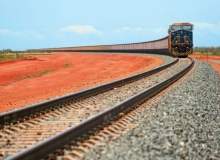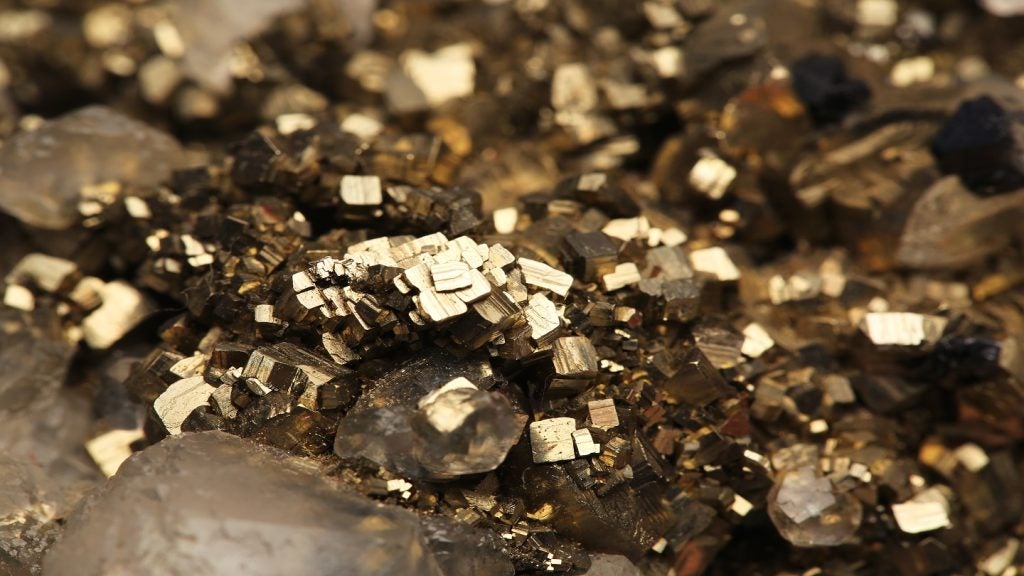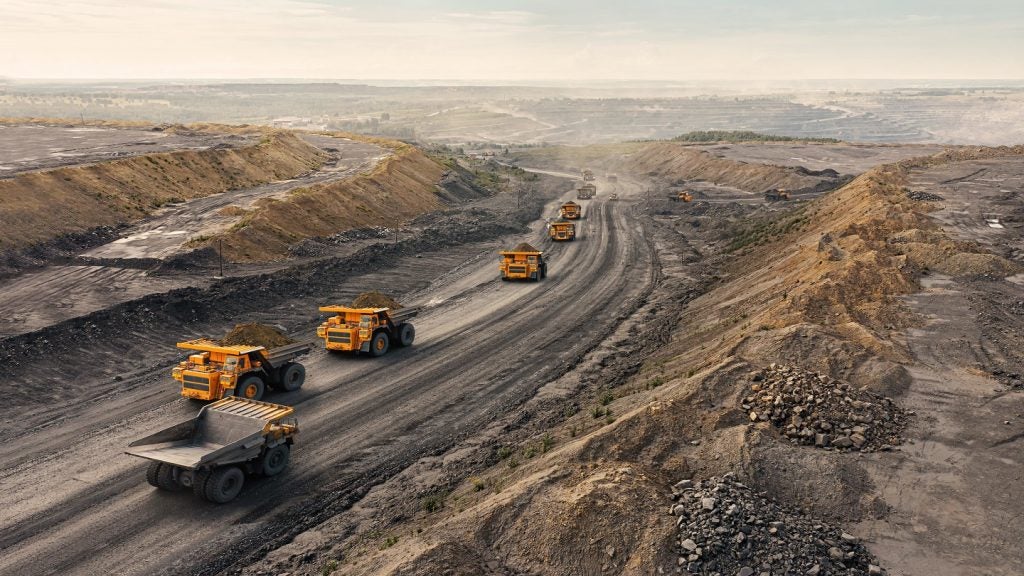

After ten years of rising demand for coal, iron ore and other commodities, which boosted the fortunes of the mining industry worldwide, particularly in Australia, demand has started to cool, and commodity prices fall, leaving many of the country’s mining companies feeling that their only options are to reduce risk, cut costs and put a stop – at least temporarily – to some of their most important projects.
In June, for example, Mitsubishi‘s US$5.9 billion Oakajee port and rail iron ore project and Jack Hills mine expansion in Western Australia were put on hold, as the company failed to find an investment partner to help fund the projects, while September saw Glencore Xstrata halt its enormous $6 billion Wandoan thermal coal project in Australia because of coal market prices approaching three-year lows.
Exploration, for many, is not even on the agenda as they move into cash preservation mode in order to stay afloat. Yet, according to the Minerals Council of Australia (MCA), this is a short-sighted view.
Exploration in Australia sustains growth
"Exploration is clearly necessary to ensure continuing production in the minerals industry," the MCA stated in a submission to the Productivity Commission Mineral and Energy Resource Exploration Inquiry in March 2013.
See Also:
In April 2013, Toro Energy’s Wiluna project became the first uranium mine to be approved in Western Australia since the ban was lifted in 2008.
How well do you really know your competitors?
Access the most comprehensive Company Profiles on the market, powered by GlobalData. Save hours of research. Gain competitive edge.

Thank you!
Your download email will arrive shortly
Not ready to buy yet? Download a free sample
We are confident about the unique quality of our Company Profiles. However, we want you to make the most beneficial decision for your business, so we offer a free sample that you can download by submitting the below form
By GlobalData"In the words of the Argus-Ferguson Policy Transition Group (PTG) report on Minerals and Petroleum Exploration, released in December 2010: ‘A strong resource exploration sector is the backbone of the resource industry in Australia, ensuring continued future access to high quality deposits. The amount of investment in exploration affects the ability of Australia’s resources to sustain strong growth and expand its contribution to national economic growth over the medium to long term.’"
The Abbott government seems to agree
The incoming Abbott government seems to agree. Indeed, they have already pledged to ‘reboot’ the mining boom and abolish both the mining and carbon taxes within 100 days of gaining power. "We can do so much," Abbott said in September. "We can get Australia open for business, we will restore an appetite for risk and investment [and] people’s jobs will grow massively."
Of course, this will be easier said than done, as Abbott will require senate approval to scrap the carbon and mining taxes, but clear commitment to achieving it is certainly a start. Moreover, in October, the government announced a framework for the streamlining of project approvals – without diminishing environmental protections – in the form of a ‘one-stop shop’, a move the MCA believes has not come before time.
"The streamlining of project approvals between the Commonwealth and the states is a long overdue reform of Australia’s cumbersome and inefficient green tape burden," the body believes.
Signs look positive for mineral exploration in Australia
So is now the right time to explore? A cautious ‘yes’ from Bruce Campbell-Fraser at Western Australia’s Chamber of Minerals and Energy (CME). In fact, he says, exploration has already begun to pick up. "In the regional sector in Western Australia, our major challenge is certainly the high cost of doing business so everyone is very focused on ensuring our projects remain internationally competitive at the moment," he said. "However, companies are also looking for a future pipeline of projects and exploration delivers that. Companies are beginning to explore again."
Indeed, the most recent exploration data Campbell-Fraser has seen shows a small upturn in mineral exploration in the region. "Over recent years, it had been pretty flat or declining, but in recent months, that has changed," he noted. "Although there was a fall in total mineral and petroleum exploration of about 6.2% (mainly driven by a decrease in petroleum exploration), we saw a small turnaround in mineral exploration in the last quarter, which increased by 3.5%. It’s a bit too early to say that this is a positive sign – we’d like to see that increase replicated in future quarters – but it’s pleasing to see that the decline has ceased."
For Campbell-Fraser, the government’s realisation of the importance of exploration has been key to this (albeit slight) turnaround, and its continued support will be crucial to the industry’s future success.
"Both the state and federal governments have recognised the importance of exploration to the sector," he emphasised. "The WA state government have an exploration incentive scheme, where they award co-funding to drilling programmes, which acts as an incentive to get drilling rigs out and about and directly assists exploration efforts, while the new Abbott government has committed to an exploration development incentive, which allows to investors to deduct a proportion of the mining exploration expenditure against their own taxable income. Accessing capital is key for those undertaking exploration programmes. "We’re hopeful that these two programmes and this support by government will encourage companies to undertake further drilling."
Geospatial data is the bedrock of mining, and geographic information systems (GIS) are making this data clearer and more detailed.
Australia ripe for mining
Australia’s potential for mineral exploration is certainly unlikely to prove a problem. A massive two thirds of Western Australia remains unexplored for minerals and geologists believe the territory presents huge potential, while the Northern Territory is similarly under-explored, although former Chinese commodities trader, Jerry Ren Xiaofeng, is quietly building a mining empire there and already reaping handsome rewards.
"We also have emerging uranium exploration in Western Australia," Campbell-Fraser added. Projects include Toro Energy’s Wiluna project, and Cameco‘s Yeelirrie deposit.
Government support is crucial
Continued government support will be absolutely crucial to ensure that the still slow uptake in exploration continues, as Chairman of the Business Council of Australia’s policy committee and Rio Tinto’s managing director in Australia, David Peever, said earlier this year. "The resources sector, in particular, operates over long-term horizons, involving substantial investment and infrastructure commitments spanning generations. For Australia to maximise its potential and to achieve desired growth, we need leadership from our politicians focused on the long-term national interest, buttressed by proper governance, strong institutions and consultative decision-making processes."
In Western Australia, Campbell-Fraser remains hopeful, but realistic: "For the increase in exploration to be sustained, we’re hoping that commodity prices remain high and our cost structures remain under control. Overall, companies have been very focused on that over the past 18 months and everyone seems to be doing very well at extracting productivity gains. We’ve also been pleased that the government recognises the importance of exploration; that’s really important."


.gif)



